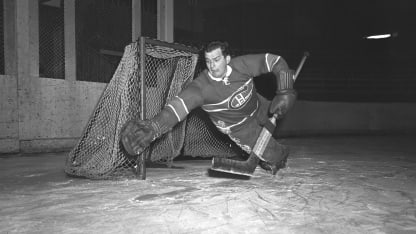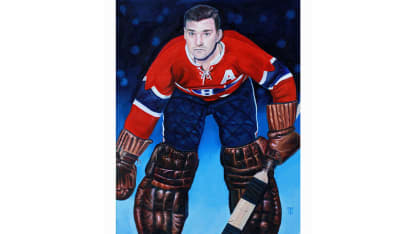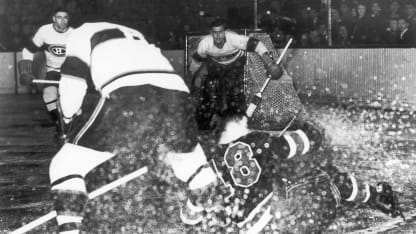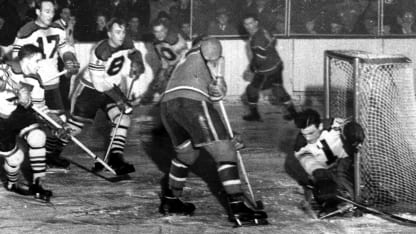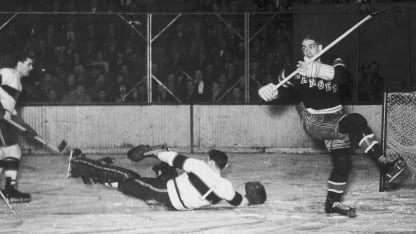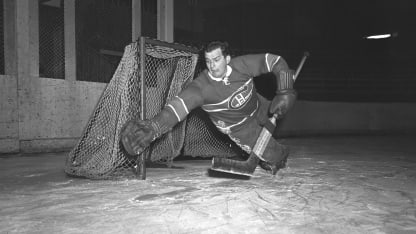"If it hadn't been for Faulkner, I might never have had the skill to even get to the NHL," Durnan told author Hal Bock in the book "Save." "Steve showed me how to switch the stick from one hand to the other. Frankly, at the age I was then, I wasn't sure it was a hockey stick I was moving from hand to hand because it felt more like a telephone pole. But Faulkner kept after me and, gradually, the stick seemed to get lighter and lighter. It finally became so easy that I was changing automatically from hand to hand and often didn't realize I was doing it."
In his mid-teens, Durnan played for amateur teams in the Maple Leafs development chain. In his later teens, after some non-hockey injuries kept him off the ice, the Maple Leafs dropped him, which embittered Durnan toward professional hockey.
"I had been one of those zealous kids who just lived for an NHL career, but suddenly I wasn't especially concerned about playing pro hockey at all," Durnan told Bock.
Once recovered, Durnan played with senior amateur teams in northern Ontario's mining region, where he'd found steady work in the mines during the Great Depression. At 24, he was the goaltender for the 1940 Kirkland Lake Blue Devils, who swept the Calgary Stampeders in three games to win the Allan Cup, Canada's senior amateur championship. That's when the Montreal Royals recruited him, the owner enticing Durnan with an accounting job in his steel foundry. Durnan was now in the orbit of the Canadiens, playing in the Forum and distinguishing himself regularly.
Dick Irvin began coaching the Canadiens when Durnan signed with the Royals and, as his son Dick wrote in "In The Crease," "The most frustrating of the many frustrating experiences (my father) endured during his first three seasons in Montreal was watching Durnan play his home games for the Royals right in the Forum. It was obvious the amateur team had much better goaltending than the professional team that played in the same building."
When Bibeault entered the armed forces in 1943, Gorman didn't have to look far for a replacement.
Initially, Durnan wasn't especially interested, recalling how the Leafs mistreated him. But Gorman persisted and signed Durnan just minutes before the first game of the 1943-44 season on Oct. 30. Durnan was spectacular that night, a 2-2 tie against the Boston Bruins, and went undefeated in his first 14 games, winning 11 and tying three, setting an NHL record for longest unbeaten streak to start a career.
